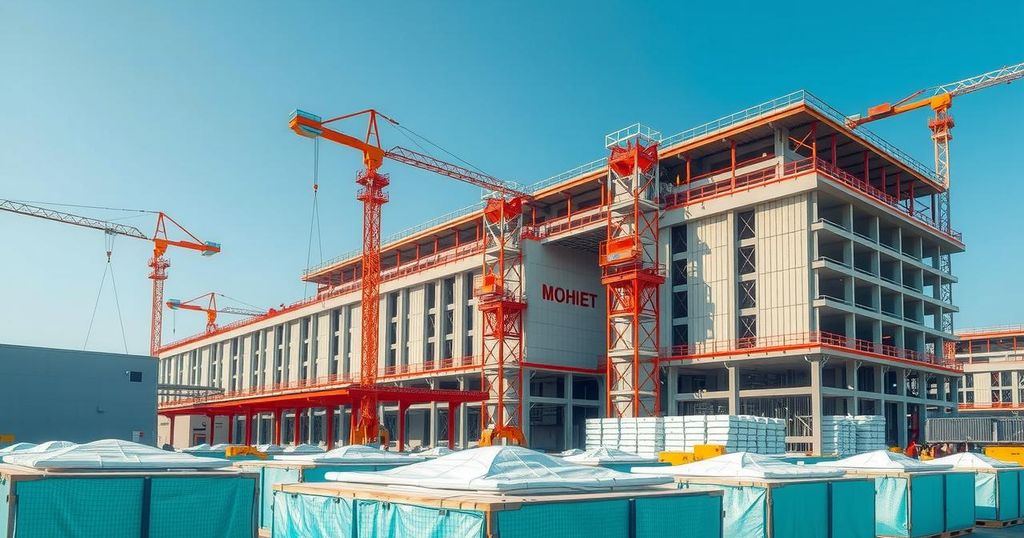Brazilian Prosecutors Sue BYD Over Slave-Like Labor Allegations
Brazilian prosecutors are suing Chinese company BYD for $50 million over failures to uphold labor rights. Allegations include slave-like conditions for 220 Chinese workers at a construction site in Camaçari. Reports indicate severe inadequacies in worker accommodations and hygiene facilities. BYD has previously denied the allegations, claiming they are part of a campaign to discredit Chinese enterprises.
In a significant legal development, Brazilian prosecutors have filed a lawsuit against BYD, a prominent Chinese electric vehicle manufacturer, alongside two contractors. This lawsuit arises from shocking allegations of slave-like labor conditions and human trafficking practices involving Chinese workers. The case, initiated by the Bahia state labor prosecutors’ office, seeks a staggering 257 million Brazilian reais, which is roughly $50 million, in damages from BYD, China JinJiang Construction Brazil, and Tecmonta Equipamentos Inteligentes.
The lawsuit is rooted in an investigation that exposed egregious working conditions at the site of BYD’s new factory located in Camaçari. The investigation reportedly resulted in the rescue of 220 Chinese workers last year, who were allegedly lured to Brazil under false pretenses and with mismatched visa documents that did not correspond to their actual jobs. This is a serious concern that highlights deep-seated issues within international labor practices.
The prosecutors’ findings reveal that working conditions were intolerable. The office described that BYD and its contractors maintained five settlements under deplorable conditions. Workers reportedly had to sleep on beds lacking mattresses and store their personal belongings in close proximity to their food. Additionally, sanitation facilities were woefully inadequate, with one settlement having only one toilet catering to 31 individuals. Workers were forced to wake at 4 a.m. to attend to their hygiene needs prior to beginning their workday, highlighting the serious neglect of basic human rights within the labor environment.
As of now, BYD has not responded to a request for comments from The Associated Press. Previously, a spokesperson for the company dismissed reports of poor working conditions, labeling the allegations as an attempt to tarnish the reputation of China and its brands. This denial raises questions about the company’s commitment to ethical labor practices and accountability.
This lawsuit underscores not just the alleged misconduct of BYD and its partners, but also the broader implications for labor rights and regulations in Brazil’s burgeoning electric vehicle industry. The outcome of this legal battle could potentially signal a turning point in how foreign companies are held accountable for labor practices in Brazil and elsewhere in the world.
As this situation unfolds, the commitment to ensuring fair labor standards and human rights must remain a priority for all stakeholders in the global marketplace. The actions taken in response to this lawsuit may reflect the readiness of Brazil’s legal structure to confront such daunting allegations head-on as the nation continues its push towards economic modernization and ethical labor standards.
In conclusion, Brazilian prosecutors are taking a firm stand against BYD and its contractors over severe allegations concerning slave-like labor practices. The lawsuit seeks substantial damages and draws attention to the treatment of workers in the electric vehicle manufacturing sector. As accusations unfold, the implications for labor rights and corporate accountability will be pivotal, not just for Brazil but also in the international context. Ensuring fair treatment of workers and upholding human rights remain paramount in today’s global economy.
Original Source: www.newsday.com




Post Comment